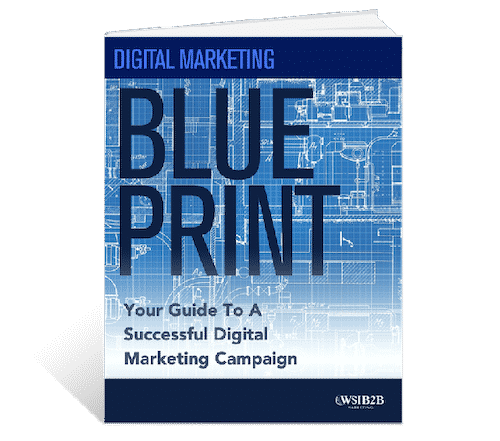Top 5 Reasons Why Digital Marketing Isn’t Working For You (And How To Fix Them)
June 21, 2022
Over the past 17 years, I have encountered countless excuses as to why
companies feel that digital marketing won’t work for them. All too often,
companies fall into the trap of thinking that their business model is “too
different” or “too unique” for internet marketing. In the following article,
I will explain the top five reasons that digital marketing strategies fail
and offer some suggestions as to how your company can avoid them.
Resistance To Change
When I opened my first digital marketing company in 2001, I remember
business owners explaining to me why their company didn’t need a
website. Fast forward 17 years later and we now know a company website
is not only needed — it’s imperative. I receive a similar attitude when
suggesting social media marketing with business owners. Unfortunately,
many companies are creating their own demise by refusing to adapt their
efforts to the current marketing trends.
Yes, change is scary and uncomfortable, but change is also inevitable.
Don’t avoid digital marketing just because it’s unfamiliar. To make
yourself more comfortable with the idea, seek out some educational
articles and tutorials. Knowing a few basic digital marketing concepts
will ease the fear of the unknown and give you the confidence to at least
try a smaller-scale test.
Inexperience
Lack of experience is the No. 1 internet marketing killer. Many
companies aren’t willing to seek proper training for their marketing
employees, resulting in a huge waste of time and money. The world of
digital marketing is becoming increasingly complex, making it nearly
impossible to do half-heartedly. In addition, digital marketing is in a
constant state of change, requiring marketers to learn, research and
adjust their strategies on a continual basis.
Find a marketing company or freelancer to perform an ad test for your
company (preferably one that has a track record of success to avoid even
more wasted time and effort). This allows companies to dip their toes in
the digital marketing waters without committing to a lengthy contract.
These small-scale tests are excellent at predicting your company’s
success (or failure) on any given digital platform, allowing you to find an
accurate starting point for larger campaigns.
Successful Marketing Starts with a Plan
You wouldn’t build a house without a blueprint, why would you start your marketing without one?
Low-Quality Content
I am often asked to share my “secret sauce” to digital marketing success.
However, a universal magic formula just doesn’t exist. Many variables
play a part in a successful social media campaign, content being one of
the most important. You are competing against not only other
advertisers on social media but also all of the other content that a user
actually wants to see (for example, a friend’s post about their most recent
vacation). Creative content is key to cutting through the noise and
capturing your desired audience’s attention. In the office we refer to this
kind of content as STT (stop the thumb), meaning something that’s going
to stop a person from scrolling past and actually read (and hopefully)
engage with your ad.
Set aside 20% of your advertising budget for creative expenses (high-
quality photos, engaging videos, etc.). While this is usually the first area
of the budget to get cut, I always urge the companies I work with to think
twice about neglecting content. If you are using poor quality content, you
will probably lose more in ad spend anyway, so it’s never worth it.
Undefined Goals And Unrealistic Expectations
Before beginning any marketing campaign, it’s important to set realistic
expectations and goals for what you’re hoping to accomplish.
Unfortunately, it’s very rare that a digital marketing campaign is
successful right out of the gate. I have seen far too many companies stop
their campaigns prematurely. It’s important to understand that most of
the initial testing is done solely to build target audiences and other key
metrics before even going for an actual sale. The modern digital
marketer is testing hundreds and sometimes thousands of ad groups,
looking to hit that sweet spot of cost, impressions and engagement,
which doesn’t happen overnight.
In the beginning stages of a campaign, it’s necessary to primarily focus
on key performance indicators (KPIs) rather than return on investment
(ROI). A successful campaign requires a strong foundation before it can
be expected to generate sales. Use data from your previous marketing
efforts to set a baseline of comparison and educate yourself on the
process to keep your goals clear and attainable.
Upper Management Doesn’t Use Social Platforms
When owners and managers don’t personally use social media, they are
often skeptical of the effectiveness of social media advertising. Trying to
explain anything technical in the campaign becomes almost impossible
when the person isn’t familiar with even the basics of a platform. When I
notice a client being negative about a platform for no other reason than
personal bias, I try to explain that it’s just a test for one piece of a larger
puzzle.
While the client might not understand the platform itself, I try to keep
the focus on data and processes that they are familiar with (for instance,
target audiences and number of clicks on an ad). By using metrics that
are easier to explain, a client will be better able to understand the overall
effectiveness.





